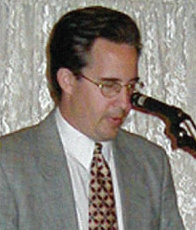A Quote by Maria Teresa Horta
I think that if poetry is not a personal act, it's a pamphlet.
Related Quotes
It's the difference between a parable and a pamphlet. A parable discusses things that are relevant in the past, the future, and the present - regardless of the outcome in the present. A pamphlet, on the other hand, is completely concerned with affecting an outcome in the present, the most immediate present.
Poetry is the most informative of all of the arts because everything comes down to poetry. No matter what it is we are describing, ultimately we use either a metaphor; or we say "that's poetry in motion." You drink a glass of wine and say, "that's poetry in a bottle." Everything is poetry, so I think we come down to emotional information. And that's what poetry conveys.
I'm not against sentimentality. I think you need it. I mean, I don't think you get a true picture of people without it in writing... It's a kind of poetry, it's an emotional poetry, and, to bring it back to the literary scene, I don't think anything is true that doesn't have it, that doesn't have poetry in it.







































